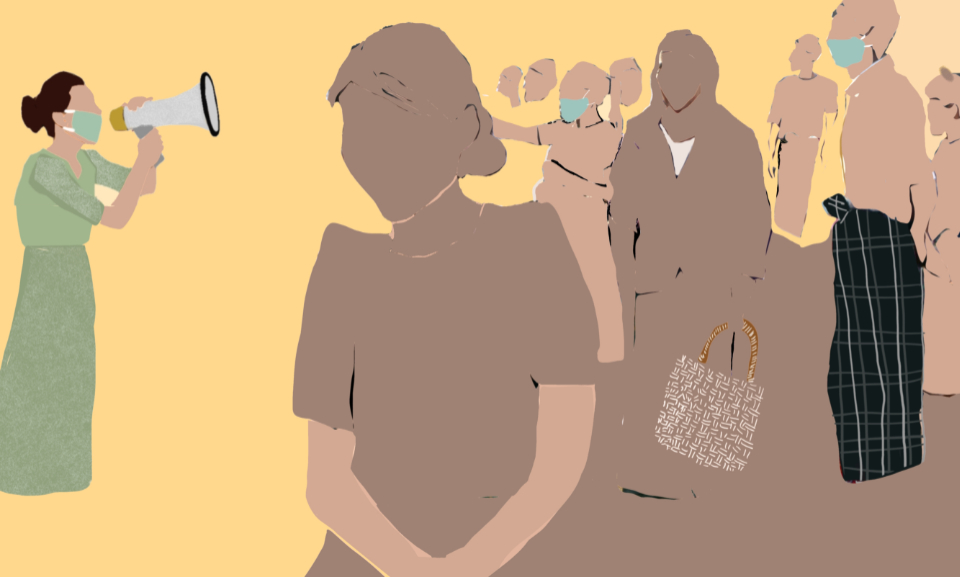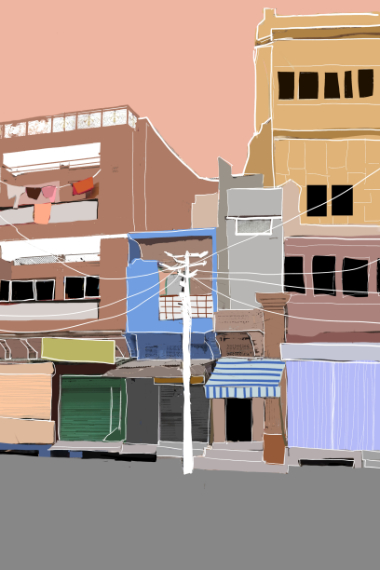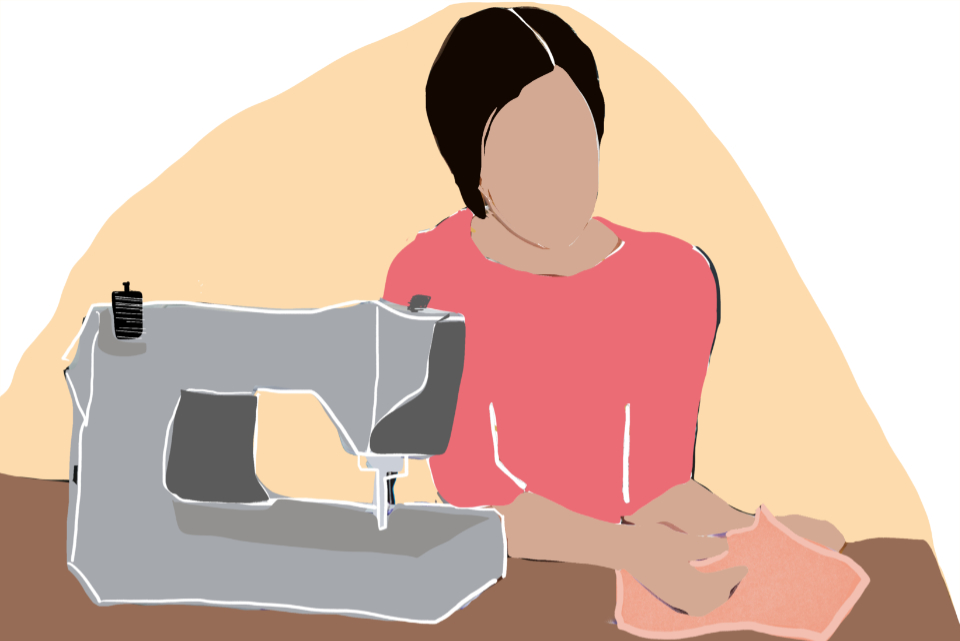A woman in a Myanmar village tries to rescue her small business from the COVID-19 pandemic
Date:
Author: Shwe Mya Thein and Lesly Lotha*

Sittwe, Myanmar -- Like everyone else running small businesses in her community, Myint** has found her income sapped by the COVID-19 pandemic. But using the business savvy she learned from a UN Women programme, she has a plan to try to recover.
Myint lives in a village in this township of Rakhine state in western Myanmar, and she had been helping support her family by making multipurpose cloth bags at home and selling them in her village and nearby villages and at a market.

But Myint, who is in her 30s, can’t do that anymore. She cannot go to the market nor dares to go into Sittwe town center. She’s scared of getting infected with the coronavirus amid the crowds -- she has heard that it spreads quickly. And as part of virus control measures, the local government has restricted all forms of social gatherings and has encouraged people to stay home.
So while Myint can continue making her bags at home, now she can’t sell them.
“I cannot send it directly to the local market right now and some of the buyers from Yangon do not order as regularly,” she said.
Her husband, who drives a tuk-tuk, or three-wheeled taxi, also has few customers these days and returns home early to be with their two children, nine and 13, who are on their summer holidays from school. The family lives in a small wood-and-bamboo house.
Myint has been looking for other ways to sell, and thinks going online might be the solution.
“I am exploring the market and thinking about uploading pictures of my products online with the help of my friend, who has been trained in digital marketing as part of UN Women’s programme,” she said. “I don’t think I can make the same income as I made before. I must think about how I, along with the other women, can adapt our small businesses and still make it work.
Myint had started her home business with a small grant from UN Women’s Rakhine Programme that allowed her to get the raw materials for her bags.
During the Rakhine Programme’s second phase (2019–2020), UN Women has been strengthening women’s livelihood skills in the agriculture and cottage industries and women’s knowledge of finances, markets and business development. The programme has helped 3,611 women living in camps for internally displaced people and in villages in Sittwe, Pauktaw, Ponnagyun and Mrauk-U townships. The women are taught how to make fishing nets, handicrafts and multipurpose bags and knitting, weaving, sewing, and organic dye methods.

Myint and 690 other women received their grants after learning business development through the programme and writing their own business plans.
It also was through the UN Women programme that Myint knew about COVID-19. She and others in an advanced handicraft training, done in collaboration with Finn Church Aid consortium, learned how to avoid getting infected.
UN Women has been working with other United Nations agencies, partners and the Government to raise public awareness about COVID-19. Initiatives by UN Women’s Sittwe office include providing information geared toward women, helping women get health and social protection services, and ensuring that virus control measures, such as quarantine centres, meet women’s needs and concerns
UN Women’s Rakhine Programme is a combination of two United Nations programmes. The first is the Project for Humanitarian and Development Assistance in Rakhine State (2019-2020), funded by Japan and carried out by UN Women, United Nations Development Programme (UNDP) and United Nations Refugee Agency (UNHCR). The project helps people who fled civil conflict return home and rebuild their lives. It complements the second programme, Women's Empowerment and Resilient Inclusive Communities in Rakhine (2019-2022), funded by Canada and Germany and carried out by UN Women and UNDP.
*Shwe Mya Thein works with Lutheran World Federation, a UN Women programmes partner, and Lesly Lotha is a communications officer with UN Women in Yangon.
**Only her first name is being used in this story due to the sensitive situation in Rakhine State.